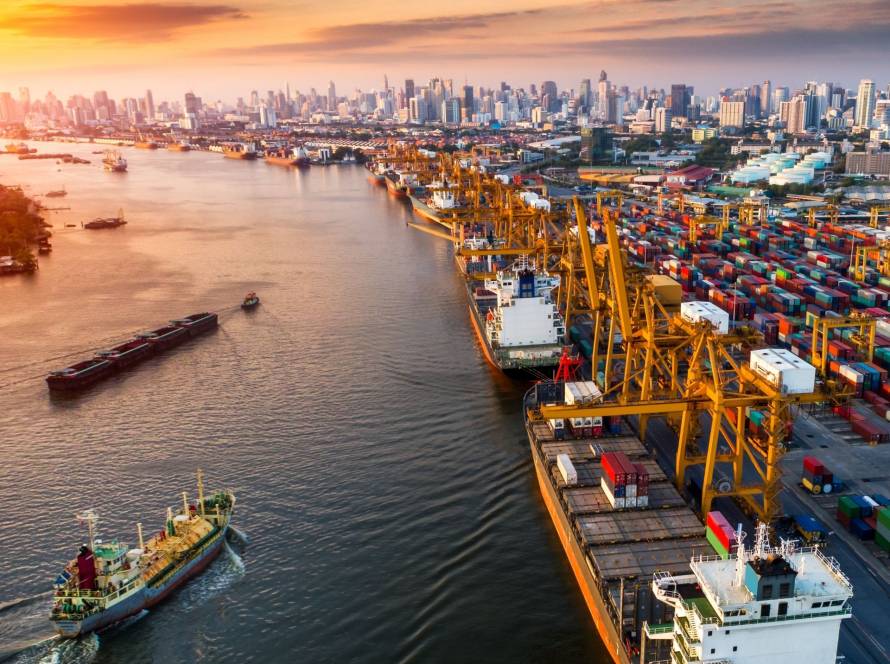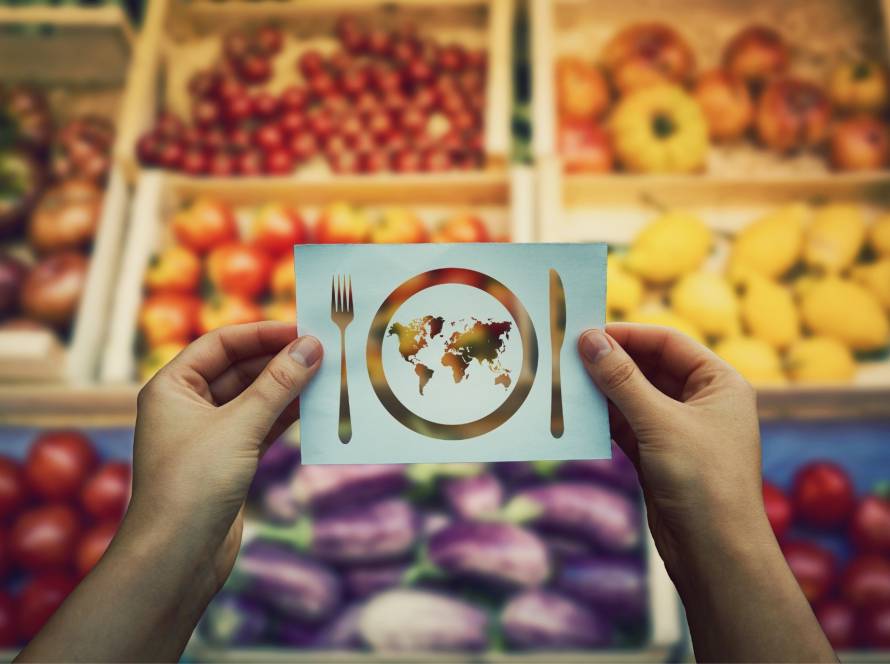Agriculture is often described as the backbone of human civilization. It has played a pivotal role in shaping societies, economies, and cultures around the world. In today’s interconnected global economy, the importance of agriculture extends far beyond local communities; it is a vital component of global food trading. As we delve into this topic, we will explore the significance of agriculture in global food trading and highlight how Istak Trading is making its mark in this dynamic landscape.
▎Understanding Global Food Trading
Global food trading refers to the exchange of agricultural products across international borders. This trade is essential for meeting the food demands of a growing global population. According to the Food and Agriculture Organization (FAO), the world population is expected to reach 9.7 billion by 2050, which means that food production must increase by approximately 70% to meet this demand. Agriculture plays a crucial role in achieving this goal, as it not only provides food but also contributes to job creation, economic growth, and sustainability.
Food security is a pressing issue that affects millions around the globe. It encompasses availability, access, utilization, and stability of food supplies. Agriculture directly impacts all these aspects. By producing a diverse range of crops and livestock, farmers contribute to a stable food supply, reducing the risk of shortages and price volatility.
Moreover, agriculture supports livelihoods in rural areas, providing employment opportunities and contributing to local economies. When farmers thrive, communities prosper, leading to increased purchasing power and improved access to food. This cycle is essential for ensuring that people have enough nutritious food to lead healthy lives.
▎The Economic Impact of Agricultural Trade
Agricultural trade significantly contributes to national and global economies. Countries that export agricultural products generate revenue, which can be reinvested in infrastructure, education, and healthcare. For instance, nations like Brazil, the United States, and China are among the largest agricultural exporters globally. Their economies benefit immensely from the export of soybeans, corn, rice, and other commodities.
Conversely, countries that rely on imports for their food supply can face economic challenges if trade routes are disrupted or if prices fluctuate dramatically. The COVID-19 pandemic highlighted vulnerabilities in global food systems, prompting many countries to reassess their agricultural policies and trade strategies.
▎The Role of Technology in Agriculture and Trade
Technological advancements have revolutionized agriculture and food trading. Innovations such as precision farming, biotechnology, and data analytics have improved crop yields and reduced waste. These advancements not only enhance food production but also make it more efficient to trade agricultural products on a global scale.
For example, precision farming allows farmers to optimize resource use by applying fertilizers and water precisely where needed. This not only increases productivity but also minimizes environmental impact. As a result, countries can produce more food with fewer resources, making them more competitive in the global market.
▎Istak Trading: A Leader in Global Food Trading
At Istak Trading, we recognize the vital role that agriculture plays in global food trading. Our company is committed to facilitating international trade by connecting producers with markets worldwide. With a focus on quality and sustainability, we strive to provide our clients with a diverse range of agricultural products.
▎Building Strong Relationships
One of our core values at Istak Trading is building strong relationships with both producers and consumers. We work closely with farmers to ensure that they receive fair prices for their products while maintaining high-quality standards. By fostering these relationships, we create a win-win situation where farmers can thrive and consumers can access quality products.
▎Commitment to Sustainability
Sustainability is at the heart of our operations at Istak Trading. We understand that agriculture must evolve to meet the demands of a growing population while also protecting the environment. We actively seek out partners who share our commitment to sustainable practices, whether through organic farming methods or responsible sourcing.
By prioritizing sustainability in our supply chain, we aim to minimize our environmental footprint while ensuring that future generations can continue to enjoy the benefits of agriculture.
▎Navigating Global Markets
The landscape of global food trading is ever-changing, influenced by factors such as climate change, trade policies, and consumer preferences. At Istak Trading, we pride ourselves on our ability to navigate these complexities. Our team of experts stays informed about market trends and regulations, allowing us to adapt quickly and effectively.
This agility enables us to respond to shifts in demand and supply chains, ensuring that our partners can rely on us for timely deliveries and competitive pricing.
▎Challenges Facing Global Food Trading
While agriculture is crucial for global food trading, it faces several challenges that need addressing:
1. Climate Change: Changing weather patterns affect crop yields and disrupt supply chains. Farmers must adapt to these changes through innovative practices.
2. Trade Policies: Tariffs and trade agreements can impact the flow of agricultural products between countries. Navigating these policies is essential for successful trading.
3. Food Waste: Approximately one-third of all food produced globally is wasted. Reducing waste is critical for improving food security and sustainability.
4. Technological Barriers: While technology offers solutions for enhancing agricultural productivity, access can be limited in developing regions.
At Istak Trading, we are committed to addressing these challenges head-on. By collaborating with stakeholders across the agricultural sector, we aim to create solutions that benefit everyone involved in global food trading.
▎The Future of Agriculture and Global Food Trading
The future of agriculture and global food trading is promising yet complex. As technology continues to advance and consumer preferences evolve towards healthier and more sustainable options, the agricultural sector must adapt accordingly.
At Istak Trading, we believe that collaboration will be key to navigating this evolving landscape. By working together with farmers, suppliers, and consumers, we can create a more resilient and equitable global food system.
▎Conclusion
In conclusion, agriculture is an integral part of global food trading that impacts food security, economic growth, and sustainability. Companies like Istak Trading play a crucial role in facilitating this trade by building strong relationships with producers and consumers while prioritizing sustainability.
As we look ahead to the challenges and opportunities that lie before us, it is clear that agriculture will remain a cornerstone of our global economy. Through innovation, collaboration, and a commitment to quality, we can ensure that agriculture continues to thrive—feeding not just our bodies but also our aspirations for a better future.
In this interconnected world, let us remember that every meal on our table has a story rooted in agriculture—a story that we at Istak Trading are proud to be part of as we work towards a sustainable and prosperous future for all.



